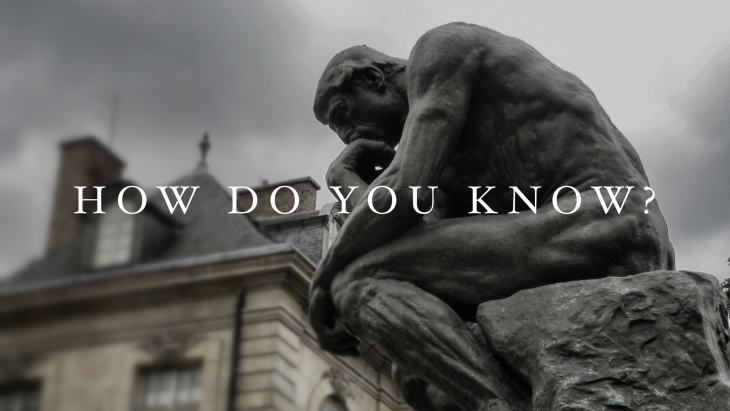“Summing it all up, friends, I’d say y’all will do best by filling your minds and meditating on things true, noble, reputable, authentic, compelling, gracious—the best, not the worst; the beautiful, not the ugly; things to praise, not things to curse.”
That’s The Message version of Philippians 4:8 with my added Texas touch. I think of this verse often as I read and watch the news and see the division in our nation. This division has been there since I was a kid, but I see the gap widening and the rhetoric becoming increasingly ugly.
It used to be OK to have a different opinion and to express these civilly. Now, there’s only one acceptable opinion. Leonard Pitts wrote this week that if you disagree with him (i.e. if you are conservative), it means you are “angry and fearful at the loss of white prerogative”…that you “embrace – or at least tolerate…a new and brazen strain of white supremacy. It means to be dismissive and destructive of the norms of democratic governance. It means a willingness to accept nonstop lies, intellectual vacuity and naked incompetence and pretend they are signs of stable genius.”
I’m sure that type of ugliness has always been around. Maybe the difference today is that this is written by a so-called opinion maker…and actually printed in newspapers. Pitts can be ignored. As Booker T. Washington reminds us, he makes a good living by making folks angry. But it is the ugliness behind it that concerns me…the shouting, the cursing, the violence and anger in our disagreement. It is an ever-present reminder of our need for reconciliation – one of the most beautiful themes in the New Testament. The Bible speaks of it on two levels.
The most important aspect of reconciliation is between a holy God and sinful man. Humans, in our sin, defy God’s authority over our lives. Instead, we assert our own authority, and in turn sever the relationship between Creator and created. Jesus’ death and resurrection made it possible for this relationship to be restored.
The word reconciliation describes that restoration. The Greek, katalasso, combines the preposition kata (according to, corresponding to) and the noun allos (other or another). It describes coming to terms with another. Our English word comes from the Latin re (again) and concilare (to make friendly).
So reconciliation is the restoration of friendly relations with another – in this case God and humans. This is what Paul describes in his second letter to the Corinthians: “Therefore, if anyone is in Christ, he is a new creation; the old has gone, the new has come! All this is from God, who reconciled us to himself through Christ…God was reconciling the world to himself in Christ, not counting men’s sins against them (2 Corinthians 5:17-20).”
Humans’ reconciliation with God is initiated by God himself, but demands a response from us.
But there’s another level of reconciliation: human to human.
One of the great issues in the growing New Testament church was prejudice amongst Jews and Gentiles. Christianity began from Jewish seed, but was attracting many Gentile converts. These new and growing churches were filled with racial tension. The prejudice wasn’t new. The call to end it was. God’s Kingdom was open to both Jews and Gentiles, and God desired reconciliation among the races.
Before his conversion, Paul was prejudice. God radically changed his heart. He would eventually write:
“For he himself is our peace, who has made the two one and has destroyed the barrier, the dividing wall of hostility… His purpose was to create in himself one new man out of the two, thus making peace, and in this one body to reconcile both of them to God through the cross, by which he put to death their hostility. He came and preached peace to you who were far away and peace to those who were near. For through him we both have access to the Father by one Spirit (Ephesians 2:14-18).”
What a beautiful picture of reconciliation. The Gentiles were, spiritually speaking, “far away” and the Jews were “near.” But out of the two, God made one. The new “race” was no longer genetic or ethnic. It wasn’t based on gender. It was spiritual. The new race was “Christian.”
This new spiritual designation overrides gender or skin color or political affiliation. It is wonderful to imagine, but difficult to live out.
The challenge lies in the fact that the concept of reconciliation implies two parties – one who did wrong and the one who was wronged. For reconciliation to take place, both parties are required to act. One must ask forgiveness, the other must grant it.
In the first order, we see the grace of God. When – and if – we recognize our sin and ask for forgiveness, his grace covers us. “If we confess our sins, he is faithful and just and will forgive us our sins and purify us from all unrighteousness (1 John 1:9).”
The second level – reconciliation among humans – is sometimes more difficult. For many of us, we can grudgingly admit that we have “fallen short of the glory of God (Rom. 3:23).” But it’s much easier to see the short-fall in others! We tend to do the opposite of what Paul encouraged in Philippians 4:8, we focus on the false, the disreputable, the fake, the famous, the worst, the ugly, the things we despise. The media is there to help get us riled and keep us riled. And if we begin to move on, there are plenty of people happy to remind us how we’ve been wronged and why we should be angry.
Is reconciliation among humans possible? To a certain degree, yes. We’ve all seen parties cross aisles and shake hands. But it’s rare. And it is short lived.
Among Christians, though, it should be commonplace. Paul reminds us our reconciliation should be “compelled” by Christ’s love (2 Cor. 5:14). Easy? Not in the least. Whether we’re talking about recent or ancient grievances, reconciliation requires forgiveness. In the same way that God forgives us of our wrongs, if we are to be reconciled – to resume friendly relations – we must forgive others. And if we are wrong, we must seek forgiveness.
Let the church lead the way.
















 RSS - Posts
RSS - Posts